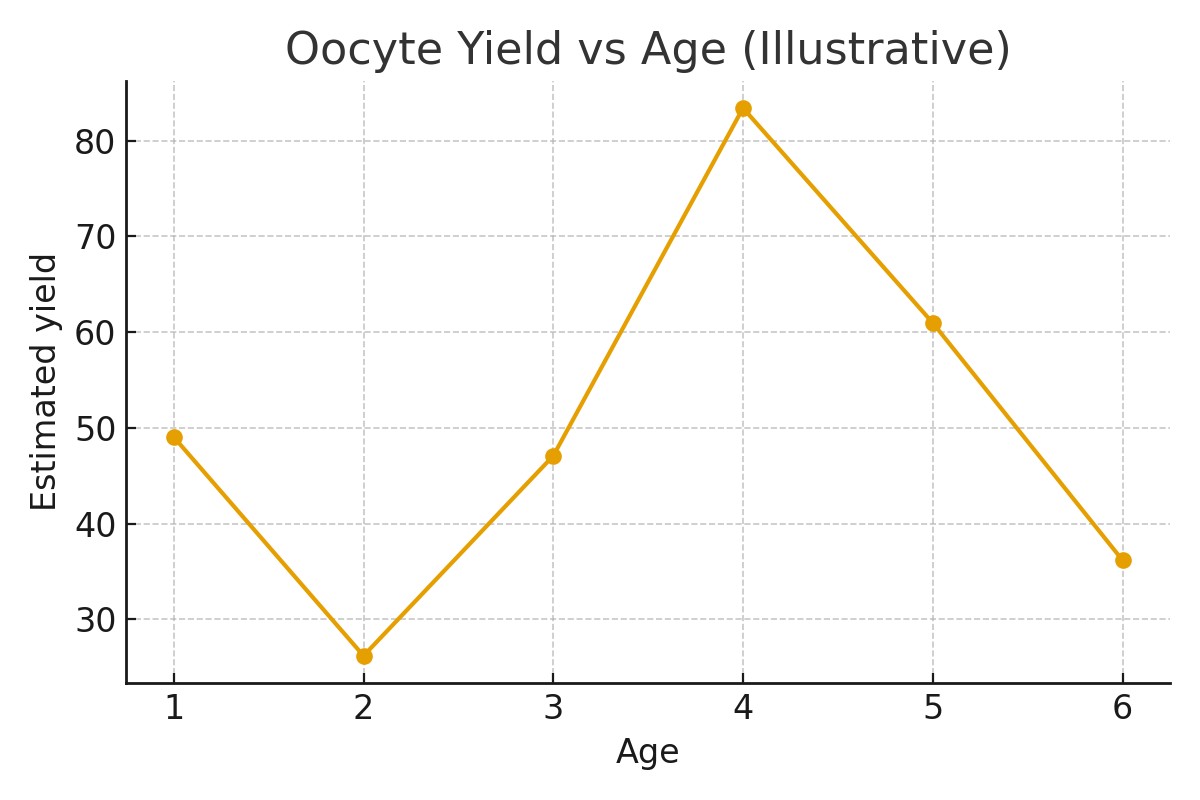
Egg freezing can feel overwhelming—this guide breaks it down step-by-step, from your first consult to the moment your eggs are safely frozen. We highlight what it is, who benefits, key decisions, costs, and what really improves outcomes—so you can move forward with confidence.
What It Is
Egg freezing preserves your fertility by securing healthy eggs today for future use. Early choices about timing, stimulation, and lab quality can shape success later.
Who It Helps
Best suited for women considering delayed pregnancy, facing medical treatment, or wanting control over family planning. Age, ovarian reserve, and health history matter most.
Step-by-Step
-
Consult & Labs — review history, hormones, ultrasound.
-
Ovarian Stimulation — 10–12 days of meds + monitoring.
-
Trigger & Retrieval — mature eggs collected under sedation.
-
Freeze & Store — eggs preserved for future IVF.
Pros & Cons
Pros: fertility security, flexibility, peace of mind.
Cons: costs, injections, and success rates tied to age.
Costs & Logistics
Includes meds, monitoring, retrieval, and storage. Insurance pre-approvals and cash-flow planning prevent billing surprises.
What Improves Outcomes
-
Choosing the right clinic and lab quality
-
Optimized ovarian stimulation & trigger timing
-
Coordinated pharmacy and cycle planning
-
Male factor and lifestyle optimization
Case Study
One NYC patient moved from uncertainty to a clear plan—using lab uploads, nurse guidance, and financing tools to align goals and budget.
Mistakes to Avoid
-
Starting too late
-
Skipping cost planning
-
Ignoring insurance or clinic logistics
FAQs
Q. How long can frozen eggs be stored?
A: Frozen eggs can be stored for decades with no evidence of reduced viability.
Q. What is the ideal age to freeze eggs?
A: The best results are usually seen when freezing before age 35, but it can still be beneficial later depending on ovarian reserve.
Q. How many eggs should I freeze for a good chance at pregnancy?
A: On average, freezing 15–20 mature eggs gives a strong chance of at least one live birth, though needs vary by age and health.
Q. Is the egg retrieval procedure painful?
A: No—retrieval is done under light sedation, so most patients feel only mild cramping afterward.
Q. Does insurance cover egg freezing?
A: Coverage depends on your plan. Some insurers cover fertility preservation for medical reasons; elective freezing may require out-of-pocket or financing options.
Trusted Providers:
-
Surrogacy4All.com — Physician-owned, FDA-licensed, $1M policy.
-
IndianEggDonors.com — Largest Indian donor source in USA/Canada.
-
EggDonors4All.com — Caucasian, Afro-American, Spanish, Asian donors.
-
PatientsMedical.com — Integrative fertility and wellness since 2004.
Resources: SART · CDC ART · ASRM

Dr. Kulsoom Baloch
Dr. Kulsoom Baloch is a dedicated donor coordinator at Egg Donors, leveraging her extensive background in medicine and public health. She holds an MBBS from Ziauddin University, Pakistan, and an MPH from Hofstra University, New York. With three years of clinical experience at prominent hospitals in Karachi, Pakistan, Dr. Baloch has honed her skills in patient care and medical research.





